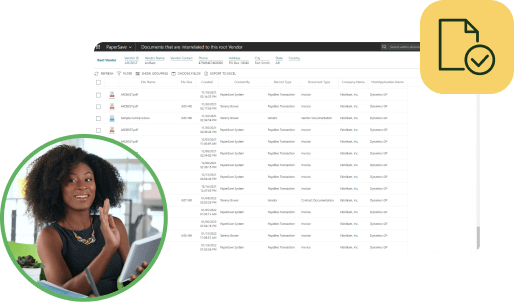
Wadih Pazos
Wadih founded both PairSoft and PaperSave. He is an avid technologist who specializes in streamlining operations and maximizing productivity.
View all posts by Wadih PazosWadih Pazos

“The response rate from our advertising and the data from this survey clearly tell us that small- and medium-sized business owners are delaying any response or reaction to Obamacare, even though it might not be in their best interest to be paralyzed at the moment,” Barry Sloane, president and CEO of The Small Business Authority, recently said in a statement.
With the Patient Protection and Affordable Care Act set to take effect in 2014, executives will be responsible for managing more healthcare costs. However, according to a recent survey by The Small Business Authority of more than 100,000 business accountants, companies are still unsure how to handle these payments. With less than two years to go before the deadline, nearly two-thirds of respondents said they have not yet decided which course of action to take.
“We are surprised at the number of business owners who have elected not to make decisions about how they will manage changes in healthcare plans,” Sloane said. “We recently advertised, on national cable news, a solution for business owners to discuss health and benefits. The results from that solicitation were less than anticipated.”
While invoice automation tools are generally categorized with accounts payable functions, their potential benefits extend far beyond simple sales processes. For example, organizations in the United Kingdom have reported 50 percent accuracy increases from invoicing procure-to-payment functions, according to a recent Sharedserviceslink.com blog post. In addition, invoice automation has allowed companies to reduce costs and boost productivity by 33 to 60 percent.
The news source suggested that invoice automation substantially improves financial document management because it provides real-time visibility of the information involved. Decision-makers may also be able to make better predictions due to having this data at their disposal.
As business owners and management struggle to handle growing healthcare payment responsibilities, they may want to implement electronic workflow systems to overcome these obstacles. Because the requirements are in flux, decision-makers could benefit from leveraging paperless document management. These systems not only improve storage capabilities, but they typically include automating functions that send documents to the right place at the right time, according to the Sharedserviceslink.com blog post.
Automated workflows empower your team to focus on larger, more complex initiatives without having to think about small processes.


Many organizations start with manual receipt handling, fragmented card feeds and slow AP processes. Implement AI agents to auto-capture receipts, route approvals, enable punch-out buys and post to the ERP.
Result: faster batching, fewer errors and cost savings. “This saves us hours every month.”
Many organizations face slow, paper-heavy AP and fragmented procurement that waste time and inflate costs. AI Agents can automate approvals, PO matching and record sync to improve speed, accuracy and control. Client quote: “It freed up hours and made our process reliable.”
Operational drag and rising costs slow growth: teams waste time on manual tasks, misaligned priorities and opaque processes. AI Agents help automate routine work and coordinate actions across teams. “We’ve lost time to repeats and handoffs,” says a typical client.
Companies struggle with manual procurement, fragmented approvals, and costly integrations that slow growth and obscure spend. Our AI Agents streamline requisitions, POs, and invoice matching to cut manual work and improve visibility. “We were wasting time and missing insights,” says a client.

Many teams start with fragmented PO/AP systems, manual matching and delayed financial reporting. Deploying AI agents to automate PO checks, real-time encumbrance tracking and invoice matching reduces processing time and errors, delivering live budgets and faster closes. “Finally, we can see current balances and approve instantly.”
Many companies juggle growing invoice volumes and legacy systems. They struggle with manual processes, compliance gaps and limited headcount. Our AI Agents automate integrations, enforce rules and surface exceptions. The typical outcome: faster closes and measurable ROI. “We stopped chasing invoices.”